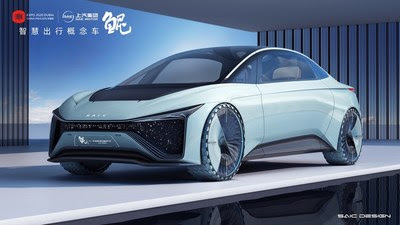General Antonio Guterres told Ethiopia's Prime Minister Abiy Ahmed that Ethiopia has no legal right to expel seven U.N. humanitarian officials.
Guterres told the Ethiopian leader in a phone conversation Friday that the world body does not accept Ethiopia's decision to expel the senior U.N. officials, according to U.N. deputy spokesman Farhan Haq.
Haq said the U.N. Office of Legal Affairs sent a note to Ethiopia's U.N. mission in New York on Friday stating the U.N.'s "longstanding legal position" that the action of declaring someone "persona non grata" does not apply to U.N. personnel.
Ethiopia announced the expulsion on Thursday, giving the U.N. officials 72 hours to leave.
In a tweet, Ethiopia's ministry of foreign affairs said the seven were "meddling in the internal affairs of the country."
The tweet came amid growing pressure on the government over its deadly blockade of the Tigray region where children are reportedly starving to death. Ethiopia's government has accused humanitarian workers of supporting the Tigray forces who have been fighting its soldiers and allied forces since November, a charge that aid workers deny.
Spokesperson Haq said the U.N. officials remained in the country. When asked by a reporter if the U.N. officials would leave Ethiopia by the end of 72 hours, Haq did not directly answer.
The U.N. officials include the deputy chief of the U.N. Office for Humanitarian Affairs and a representative of the U.N. Children's Fund, UNICEF.
UNICEF said Friday the Ethiopian government's decision to expel the U.N. officials from the country is "regrettable and alarming."
Declaring its work "is more urgent than ever," UNICEF said in a statement that children are bearing the brunt of the country's worsening humanitarian crisis.
"We have full confidence in the teams working on the ground to save children's lives, guided — as always — by the principles of impartiality, humanity, neutrality and independence. Our programs will continue," UNICEF added, noting it has been present in the African nation for more than 60 years.
Conflict-induced hunger
The Ethiopian federal government has been engaged in an armed conflict with forces in the northern Tigray region for nearly one year. The government declared a unilateral cease-fire and withdrew its forces in June, but the conflict has continued to spill into the neighboring regions of Amhara and Afar.
Of the 6 million people who live in Tigray, the U.N. says 5.2 million need some level of food assistance. More than 400,000 people are living in famine-like conditions, and another 1.8 million people are on the brink of famine.
"It is critically important that the humanitarian operation continues, and it does," OCHA spokesman Jens Laerke said Friday at a Geneva briefing, according to Reuters. "Until now there is no indication that [Ethiopia's decision] stops the operation."
U.N. human rights spokesperson Rupert Colville said at the briefing that the expulsion of the head of its reporting team was a "really grave step."
On Wednesday, U.N. Humanitarian Chief Martin Griffiths said that after 11 months of conflict and three months of a de-facto government blockade, the humanitarian crisis in Tigray is spiraling out of control.
One hundred aid trucks are needed daily in the region, but in the past week, only 79 in total were allowed in, a U.N. spokesman said.
"Trucks carrying fuel and medical supplies still cannot enter into Tigray," U.N. Spokesman Stephane Dujarric said Wednesday. "Trucks are waiting in Semera, in Afar, to travel to Mekelle."
The federal government headed by Prime Minister Abiy Ahmed, a Nobel Peace Prize laureate, blames the rebels for blocking aid deliveries.
U.S. condemnation
"The U.S. government condemns in the strongest possible terms the government of Ethiopia's unprecedented action to expel the leadership of all of the United Nations organizations involved in ongoing humanitarian operations," White House spokesperson Jen Psaki told reporters Thursday.
Earlier this month, U.S. President Joe Biden signed an executive order allowing the government to impose financial sanctions on those who prolong the Tigray conflict.
"We will not hesitate to use this or any other tool at our disposal to respond quickly and decisively to those who obstruct humanitarian assistance to people of Ethiopia," Psaki said.
The U.N. Security Council held private talks Friday about Ethiopia's decision as well as North Korea's recent missile launches.
Kenya's Ambassador to the United Nations, Martin Kimani, who took over as the Security Council president for October, told reporters Friday, "A number of members expressed very strong concerns" about both situations during Friday's talks, but said no resolutions were passed on either matter.
Diplomatic sources told Reuters news agency that any aggressive action by the council on Ethiopia's actions was unlikely because China and Russia long have maintained the Tigrayan conflict is an internal matter.
VOA's Patsy Widakuswara contributed to thsi report. Some information in this report came from Reuters and the Associated Press.
Source: Voice of America

